Understandable Artificial Intelligence

A.I. In Action:
Evaluating Existing Fund
Overview

©2018 Economic Data Sciences
EDS was given a sample portfolio by a UK pension fund. Since only the asset weights were known, EDS tool deducted the investors' preferences and proceeded to analyze the holdings
The analysis was split into 3 stages:
- Asset allocation within the sample fund
- Incorporating other internally available funds
- Opening the universe to external funds
Step 1: Only Sample Fund

©2018 Economic Data Sciences
- Use only the 7 funds currently in the portfolio
-
Conclusion:
- Good current asset allocation
- Little value add from using EDS tool


*Data from EDS, St. James's Place, & Bloomberg, courtesy of London Business School
Step 2: Other Internal Funds

©2018 Economic Data Sciences
- Increase universe to all approved internal funds
- Fees are not a focus point
- In contrast to other portfolios, income, growth, and off-shore bonds are not strong preferences
Step 2: Results Overview

©2018 Economic Data Sciences
- EDS is expected to outperform existing allocation
-
Given the fund universe:
- Current fund selection is solid
- Some gains with EDS method
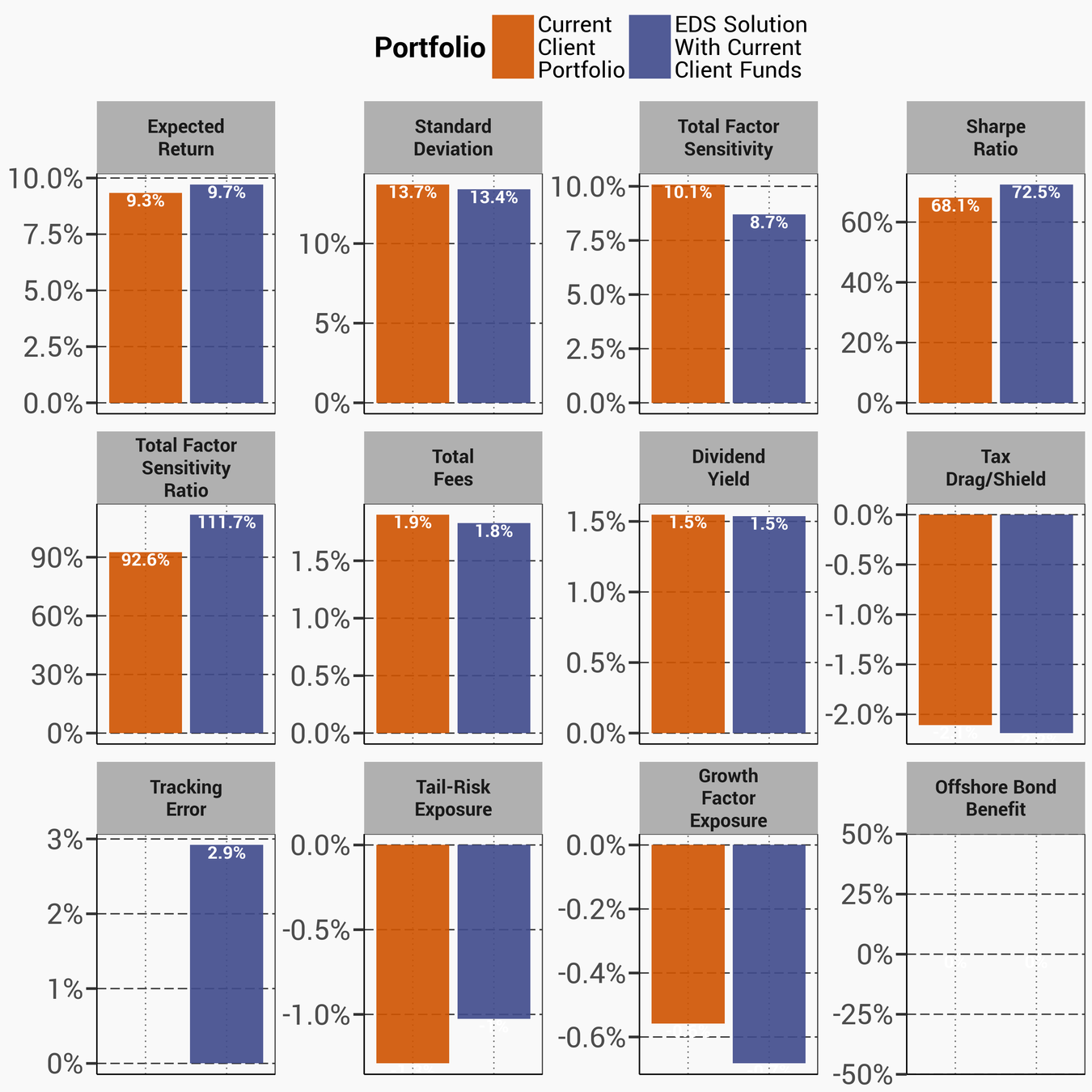
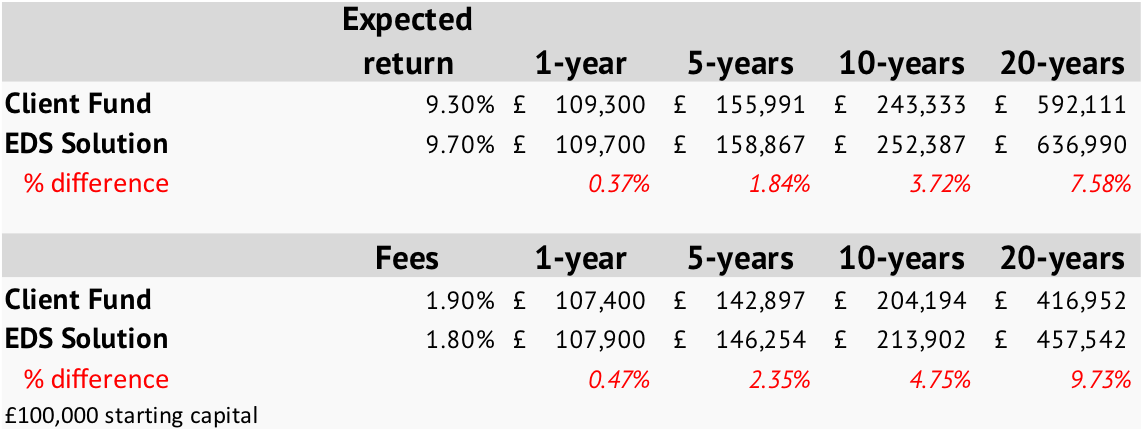
*Data from EDS, St. James's Place, & Bloomberg, courtesy of London Business School
Step 3: Opening to External Funds

©2018 Economic Data Sciences
-
Expand possible investments beyond existing funds
- Preference remains for approved client funds
- Limit each fund to 20%
- Focus on same preferences as the original portfolio
Step 3: Results - Risk/Return

©2018 Economic Data Sciences
EDS tool reviewed 2,743 potential U.K. funds
- Original portfolio allocation shows good asset selection
- Broader universe allows for more targeted risk taking
- The average mixed allocation fund expects a 6.1% annual return with 13.8% S.D.
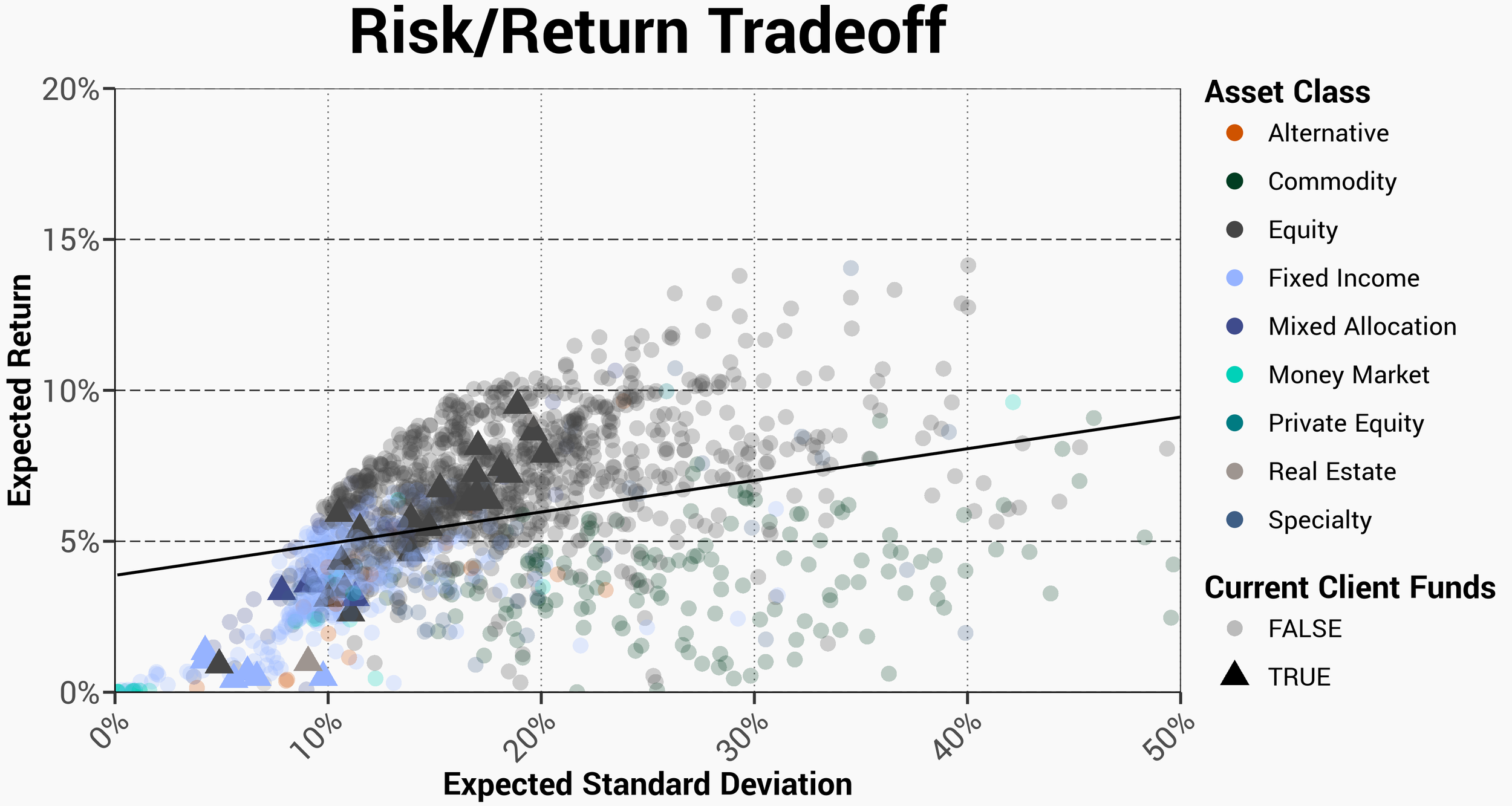
*Data from EDS, & Bloomberg, courtesy of London Business School
Step 3: Results Overview

©2018 Economic Data Sciences
Significant projected improvement using EDS tool
-
Higher expected return
- With lower standard deviation
- Lower management fees
- Higher dividend yield
- Client approved funds comprise 68% of the total
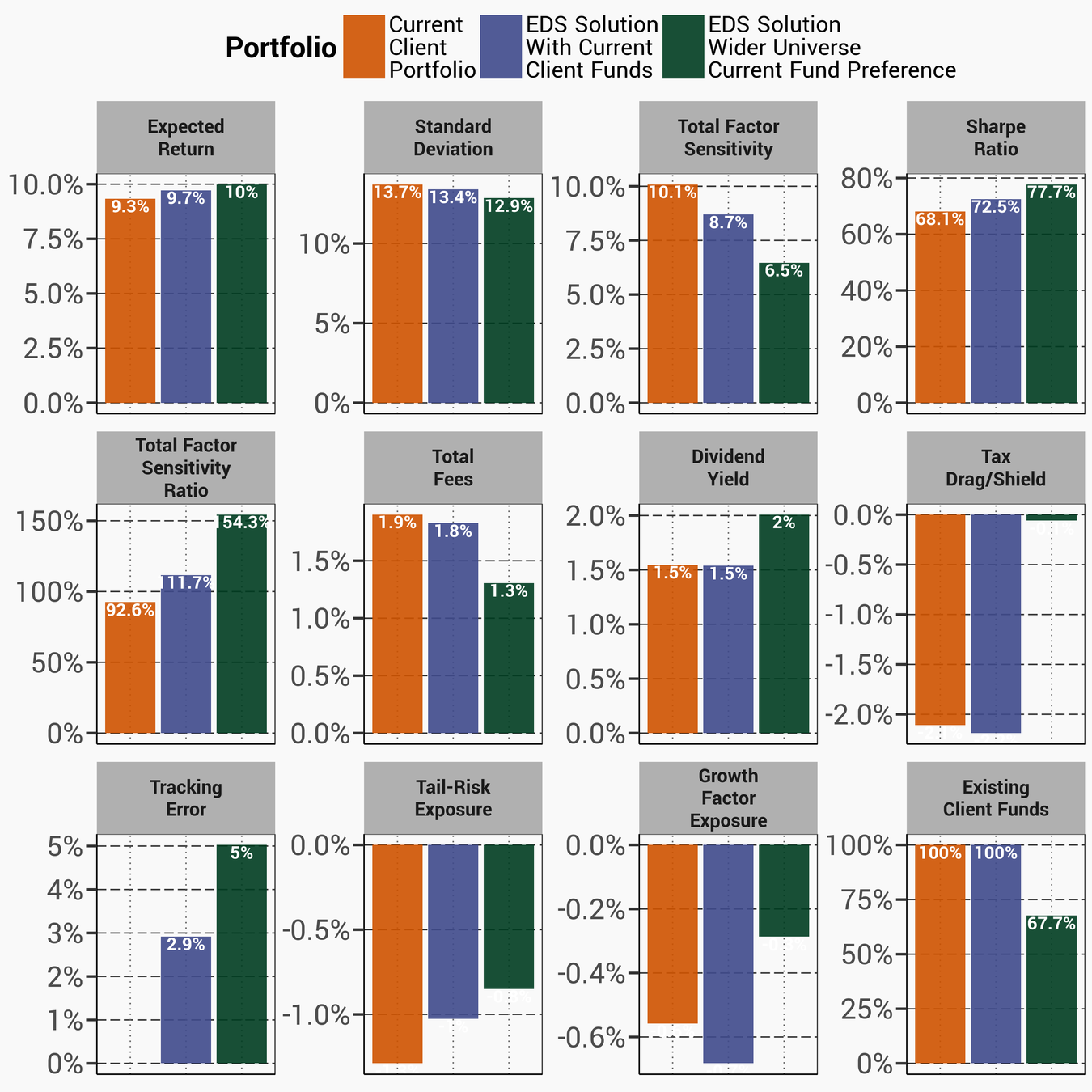
Step 3: Results Overview - Returns

©2018 Economic Data Sciences
Significant projected improvement using EDS tool
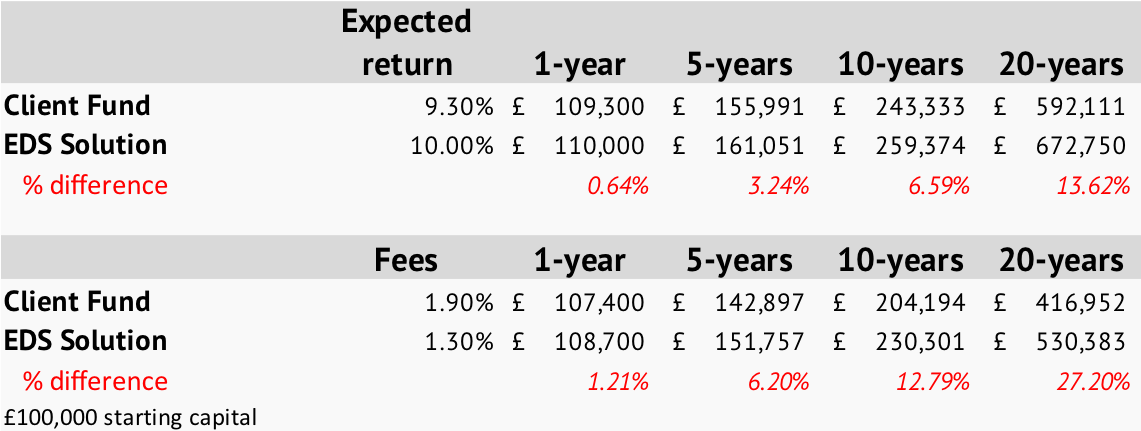
Step 3: Results Overview - Risk

©2018 Economic Data Sciences
Where do these gains come from?
- Lower risk exposure across most metrics
- Significantly improved factor risk exposure and risk distribution
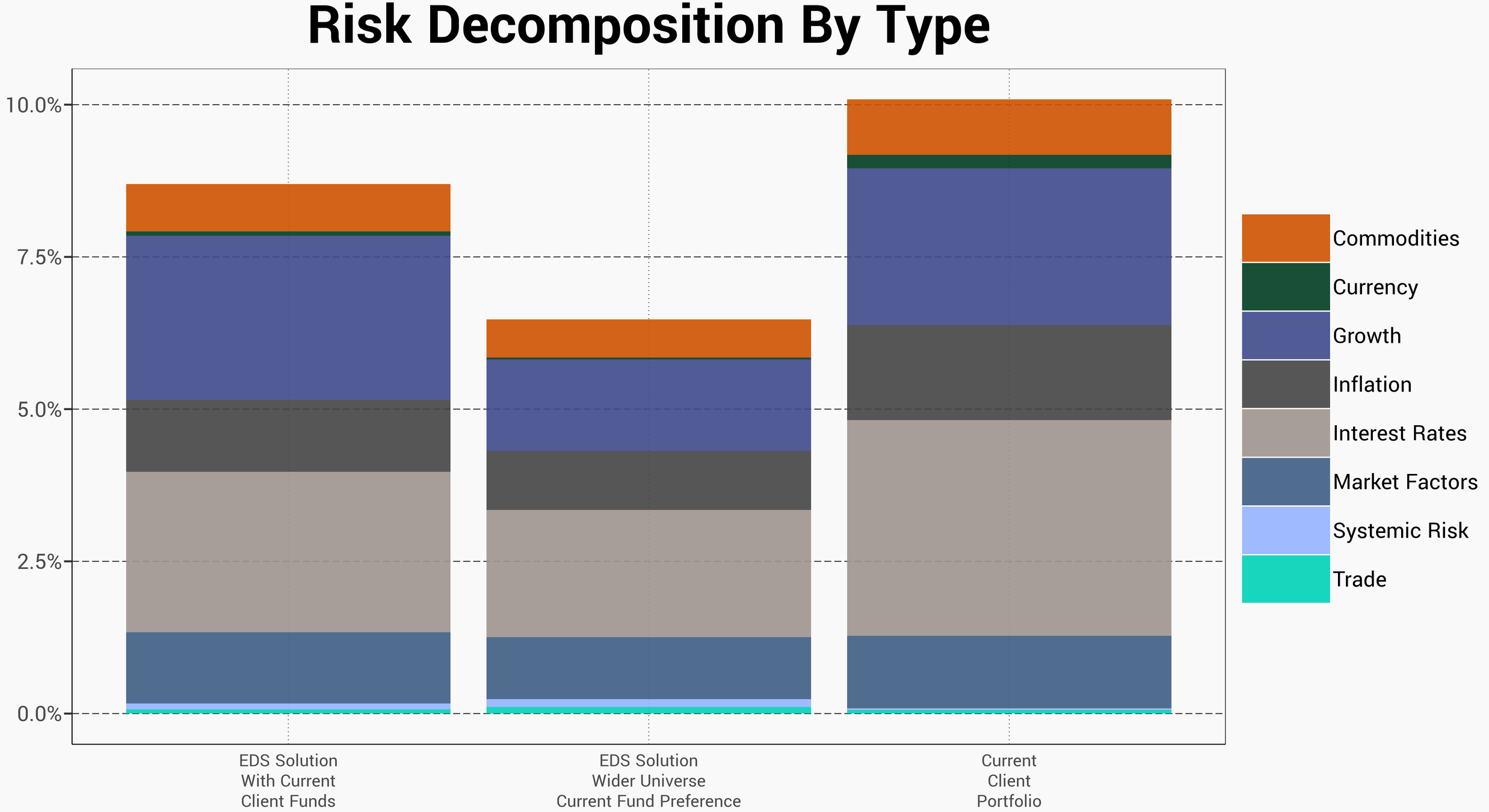
Step 3: Results Overview - Funds

©2018 Economic Data Sciences
Breakdown of selected funds
- Each fund is capped at 20%
- 8 additions to original portfolio
- Full flexibility around which funds and how many to include
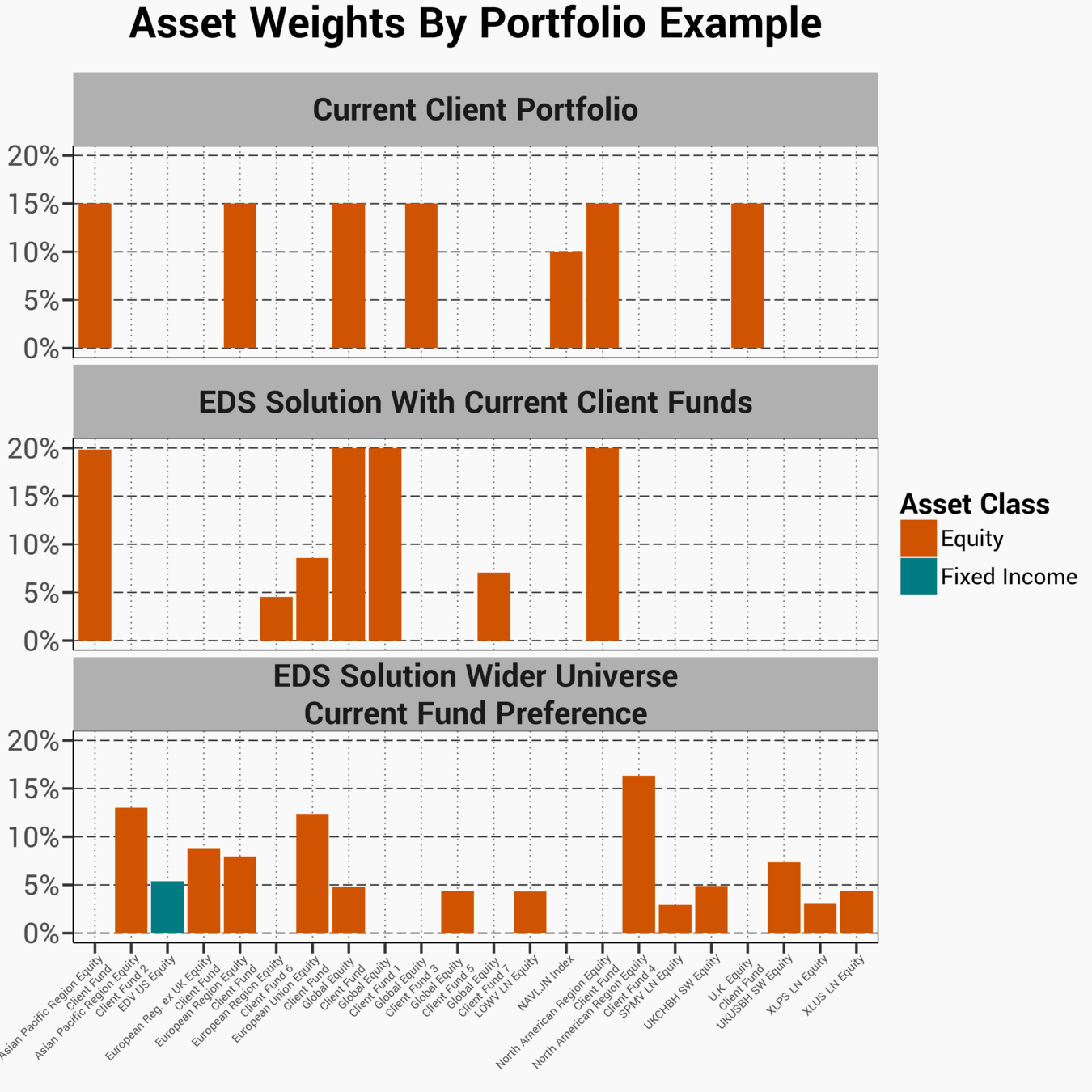
*Data from EDS, St. James's Place, & Bloomberg, courtesy of London Business School
Step 3: Human Factor - EDS

©2018 Economic Data Sciences
We combine human analysis with A.I. and M.L.:
- We maintain preference for client's funds
- Original fund has a high return target
- Our tool showed that fund holders were not getting paid sufficiently for the additional risk
-
All new funds are indexes, thereby lowering total fees
- For actively managed funds more indepth research regarding the fund, the team, the manager and the process would be needed
- Adding diversification to the existing portfolio

*Data from EDS, St. James's Place, & Bloomberg, courtesy of London Business School
Better Performance

©2018 Economic Data Sciences
Tangible benefits to working with EDS tool

*Data from EDS, St. James's Place, & Bloomberg, courtesy of London Business School
Conclusion

©2018 Economic Data Sciences
Client fund: good, but can be improved
- Within the current list of client funds, existing allocation is done well
-
Expanding the universe can provide several benefits:
- Higher projected returns
- Lower overall market risk exposure
- More even factor risk exposure across factors
- Lower fees
Disclaimers

©2018 Economic Data Sciences
Get In Touch

©2018 Economic Data Sciences
See A.I. In More examples
- Sustainable Investing (ESG)
- Big Data Simulations And Forecasts
- Factor Tracking Error Management
info@EconomicDataSciences.com
Appendix
Risks by Geography

©2018 Economic Data Sciences

Risks by Type

©2018 Economic Data Sciences

Disclaimers

©2018 Economic Data Sciences
Get In Touch

©2018 Economic Data Sciences
info@EconomicDataSciences.com
info@EconomicDataSciences.com
